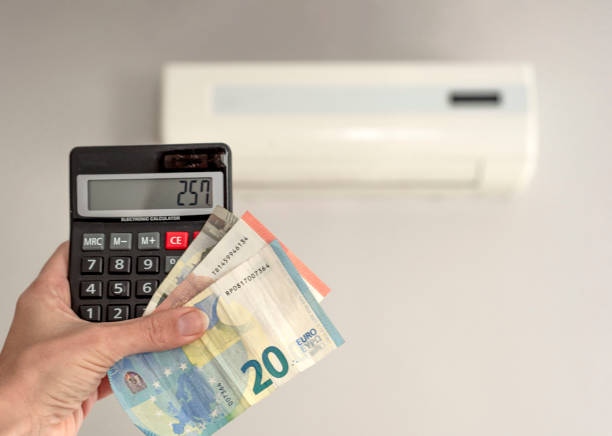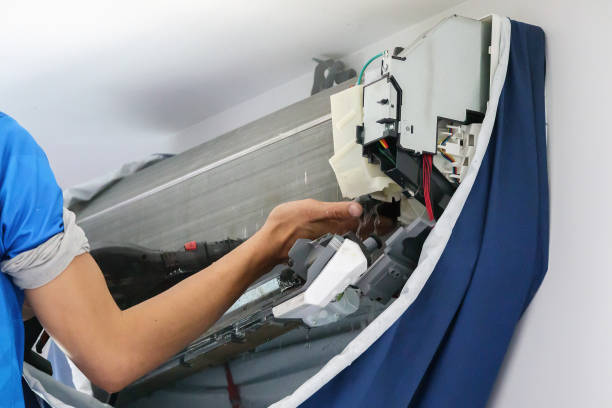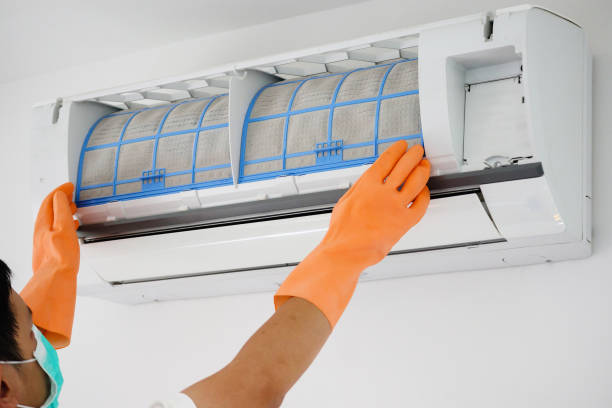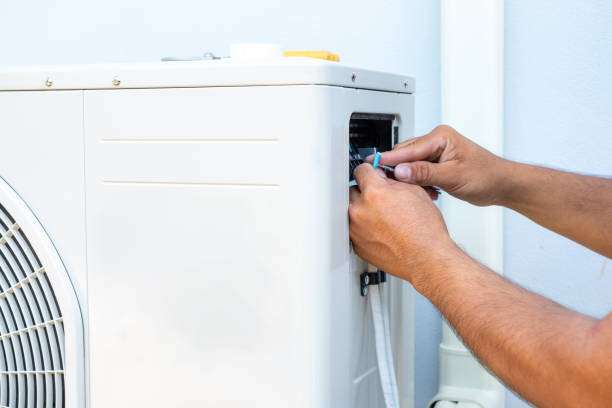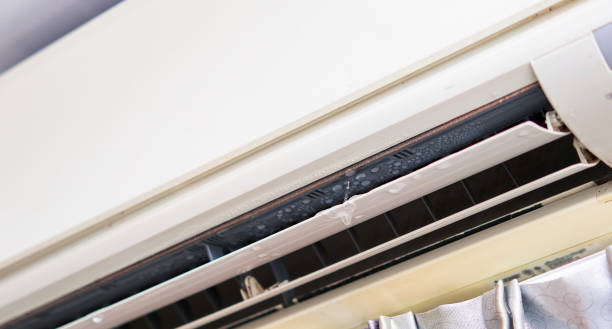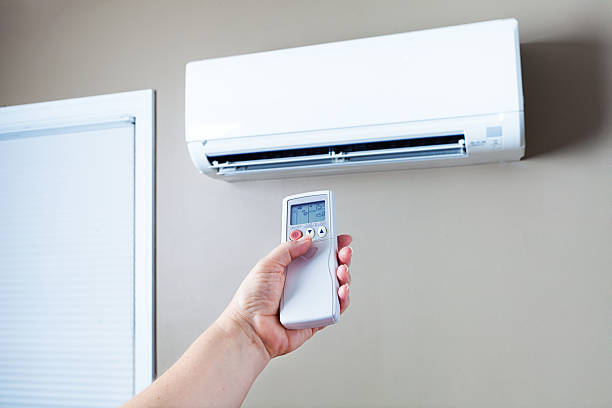Do you know how important an HVAC system repair in San Diego can be for maintaining indoor comfort? A humid coastal region with sudden heat waves as well as salt air requires its air conditioner to be in the best condition, especially before summer. Early detection of HVAC issues prevents bigger issues and causes the system to fail and a need for emergency HVAC repair in San Diego.
If you’re curious about the top signs that your HVAC unit requires repair, we have you covered with this guide breaking things down in terms of the issues your HVAC unit may be experiencing and tips on troubleshooting the issue with the system. Southbay Heating & Air Conditioning offers HVAC troubleshooting tips and answers all of the common questions that you might have about your HVAC system so that you can get it up and running again come winter or spring.
1. Weak or Inconsistent Airflow: A Red Flag for HVAC System Repair in San Diego
Weak or inconsistent airflow from your vents is one of the most obvious signs of an HVAC problem. And if the AC in some of your rooms is running but their rooms remain warm, you may have a clogged filter, blocked ducts, or a failing blower motor. But salty air also causes coastal San Diego homes to develop duct corrosion.
Airflow issues ignored can result in uneven cooling, higher energy bills, and a stressed system. To keep performing, changing air filters regularly, and scheduling duct inspections are key HVAC troubleshooting tips.
2. Unusual Noises: When to Repair HVAC Unit Before Summer
It should run without any noise. Loose components, worn belts, or failing motors generally make some kind of clanking, banging, or squealing sound. Temperatures and humidity in San Diego’s temperate climate also accelerate wear and tear for modern windows.
However, knowing when to repair an HVAC unit is e. Repairing it early can prevent more problems when demand is highest during summer.
3. Rising Energy Bills: A Hidden Sign of HVAC Problems
There could be an increase in energy usage that happens suddenly, an indication that your HVAC system is overworking. This can be caused by dirty filters, refrigerant leaks, malfunctioning thermostats, or worn-out parts.
A professional inspection is necessary if utility costs spike. Any HVAC system repair in San Diego done promptly will help restore your system’s efficiency and lower your monthly bills before the hottest summer arrives.
4. Frequent Cycling or Constant Running
Is your system always cycling on and off all day? Short cycling is a behavior that conditions; a miscalibrated, clogged filter, or improperly sized unit can cause this behavior.
Stress on components and short cycling are two of the most frustrating summer HVAC issues in San Diego, they lead to a midsummer breakdown. Stop the problem at its early stages so that the comfort is always the same.
5. Unpleasant Odors
Serious red flags are musty, burning, or rotten egg smells from your vents. In San Diego’s humid, coastal climate, however, these odors may indicate mold, electrical problems, or even a gas leak.
Strange smells you smell on your system should call upon emergency HVAC repair in San Diego immediately just to keep your health and the quality of air safe.
6. Water Leaks or Excess Moisture
A broken condensate drain, a refrigerant leak, or a frozen evaporator coil may be the cause of the moisture around your HVAC unit. Mold items can also damage your home, especially so in areas subjected to salty, humid coastal air, causing such harmful mold to proliferate.
Schedule HVAC system repair in San Diego to not have to endure extensive water damage and expensive emergency calls later on.
7. Uneven Cooling or Hot Spots
However, if there are parts of your home that are still uncomfortably hot, your HVAC system may have problems such as poor airflow, duct problems, or possibly a faulty or malfunctioning thermostat. Locations in coastal areas will be the worst offenders of the problems of salt buildup and corrosion.
One of the most common signs of HVAC problems to look for is one of the simplest to fix: uneven cooling.
Why Timely HVAC System Repair in San Diego Matters
If your home is near the coast, that means humidity and salt air, as well as temperature shifts, all wear down HVAC systems more quickly. Small problems can become large and expensive problems if service is delayed. By being proactive and responding to cautionary signs, you won’t be there from the get-go, battling the summer heat.
Southbay Heating & Air Conditioning is ready to assist you in preventing these issues from worsening and in keeping your system operating to full capacity at all times of the year.
HVAC Troubleshooting Tips for San Diego Homeowners
- Change air filters every 1–3 months
- Clear debris and vegetation from outdoor units
- Check and replace thermostat batteries regularly
- Schedule professional maintenance twice a year
- Inspect for corrosion and moisture buildup, especially near the coast
Emergency HVAC Repair in San Diego: When to Call for Help
Some HVAC issues can’t wait. Call for emergency HVAC repair in San Diego if you experience:
- Total cooling loss during a heatwave
- Loud noises or electrical burning smells
- Water leaks or visible ice buildup
- Sudden, unexplained energy spikes
- Persistent short cycling or system failure
Conclusion
Do not wait for your HVAC system to fail during the middle of the year. Early signs to watch out for, simple maintenance, and inspection scheduling can get you ahead of potential problems. An HVAC system repair in San Diego before summertime makes the summer stress-free and cool.
If only reparation and inspection are required, you can trust the experts at Southbay Heating & Air Conditioning for fast and reliable repairs. Is your AC ready for its last season of service?
Frequently Asked Questions (FAQs) related to HVAC System Repair in San Diego
Q1: How often should I schedule HVAC maintenance in San Diego?
It’s recommended to have your HVAC system professionally serviced at least twice a year—once before summer and once before winter. In coastal areas, more frequent inspections may be necessary to check for corrosion and salt buildup.
Q2: What are the most common signs my HVAC system needs repair?
Watch for weak airflow, unusual noises, rising energy bills, frequent cycling, unpleasant odors, water leaks, and uneven cooling. Addressing these signs early can prevent bigger problems and costly repairs.
Q3: Can I perform any HVAC troubleshooting myself?
Homeowners can change filters, clear debris from outdoor units, and check thermostat settings. For electrical, refrigerant, or mechanical issues, always call a licensed HVAC technician to ensure safe and effective repairs.
Q4: What should I do if my HVAC system stops working during a heat wave?
First, check for a tripped circuit breaker or thermostat issues. If these aren’t the cause, contact an emergency HVAC repair service in San Diego immediately to restore cooling and prevent health risks.
Q5: How can I prevent common summer HVAC issues in San Diego?
Regular maintenance, timely filter changes, and inspections for corrosion or moisture are key. Consider upgrading to corrosion-resistant systems if you live near the coast, and always address small issues before they escalate.
Q6: Is it better to repair or replace my HVAC system?
If your system is less than 10 years old and repairs are minor, fixing it is usually more cost-effective. For units over 15 years old or those requiring frequent, expensive repairs, replacement may be the smarter long-term investment.
Q7: What’s the average cost for HVAC system repair in San Diego?
Minor repairs typically range from $100 to $500, while major repairs can exceed $1,000. Emergency services or extensive component replacements may cost more, especially during peak summer demand.
Don’t let small HVAC issues turn into major summer breakdowns. Trust Southbay Heating & Air Conditioning for fast, expert HVAC system repair in San Diego. Call now at (619) 623-4051 to schedule your inspection or 24/7 emergency service—your home comfort starts with us.

